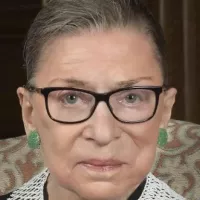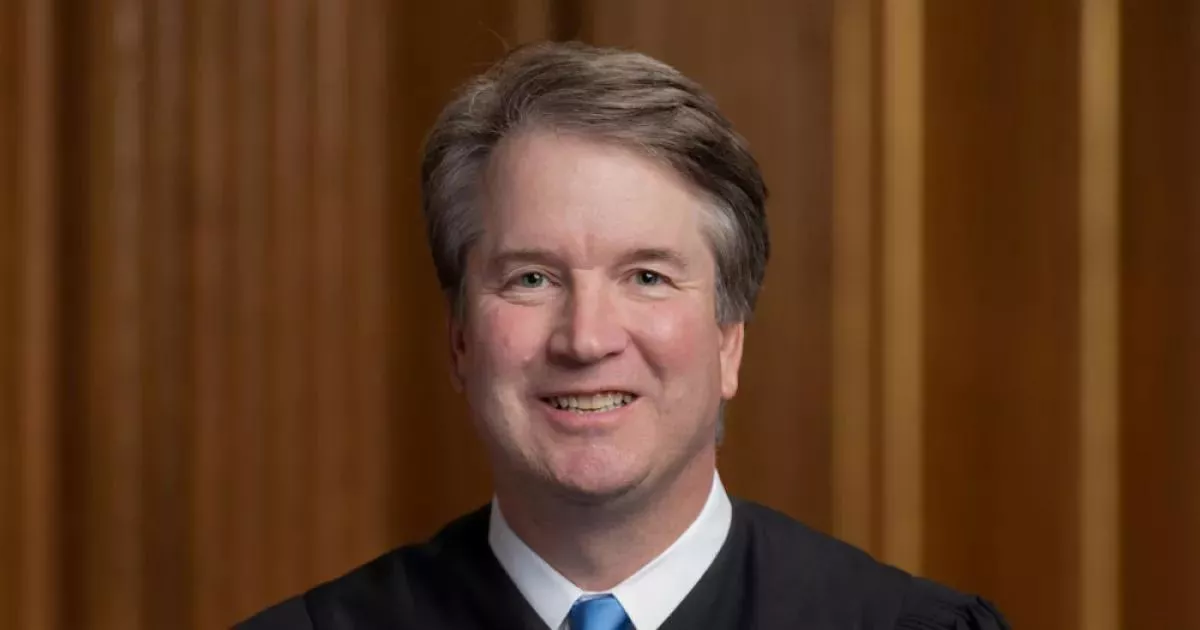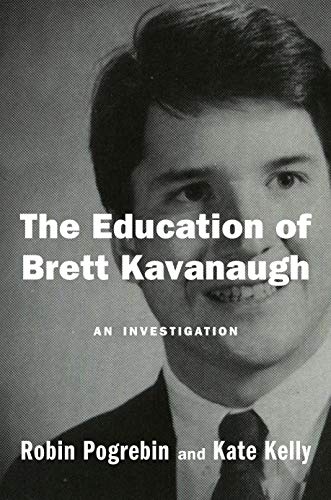Brett Kavanaugh is an American lawyer and jurist who currently serves as an Associate Justice of the Supreme Court of the United States. Nominated by President Donald Trump, he assumed the role on October 6, 2018. Prior to his Supreme Court appointment, Kavanaugh served as a U.S. circuit judge on the U.S. Court of Appeals for the District of Columbia Circuit from 2006 to 2018.
1964: Civil Rights Act Enactment
In 1964, the Civil Rights Act was enacted. This act was at the center of the Supreme Court ruling on workplace nondiscrimination protections.
February 12, 1965: Brett Kavanaugh's Birth
On February 12, 1965, Brett Michael Kavanaugh was born. He is an American lawyer and jurist.
1978: Mother Earns Juris Doctor Degree
In 1978, Brett Kavanaugh's mother earned a Juris Doctor degree from American University.
1981: Swetnick attended parties
Julie Swetnick described attending "well over ten house parties in the Washington, D.C. area during the years 1981–1983 where Mark Judge and Brett Kavanaugh were present".
1983: Ramirez Allegation
During the 1983-84 academic year, Deborah Ramirez alleged that Brett Kavanaugh exposed himself and thrust his penis against her face during a college party. Kavanaugh denied this event ever happened.
1983: Kavanaugh Enrolls at Yale University
In 1983, Brett Kavanaugh went to Yale University after graduating from Georgetown Prep.
1983: Swetnick attended parties
Julie Swetnick described attending "well over ten house parties in the Washington, D.C. area during the years 1981–1983 where Mark Judge and Brett Kavanaugh were present".
1987: Graduation from Yale
In 1987, Brett Kavanaugh graduated from Yale with a Bachelor of Arts cum laude in history.
1988: Member of the Federalist Society
In 1988, Brett Kavanaugh became a member of the Federalist Society.
1990: Clerkship for Judge Stapleton
From 1990 to 1991, Brett Kavanaugh served as a law clerk for Judge Walter King Stapleton of the U.S. Court of Appeals for the Third Circuit.
1990: Graduation from Yale Law School
In 1990, Brett Kavanaugh graduated from Yale Law School with a Juris Doctor degree.
1991: Clerkship for Judge Kozinski
From 1991 to 1992, Brett Kavanaugh clerked for Judge Alex Kozinski of the U.S. Court of Appeals for the Ninth Circuit.
1992: Fellowship with Solicitor General Ken Starr
From 1992 to 1993, Brett Kavanaugh earned a one-year fellowship with the Solicitor General of the United States, Ken Starr.
1992: Interviewed for Clerkship with Chief Justice Rehnquist
In 1992, Brett Kavanaugh interviewed for a clerkship with Chief Justice William Rehnquist of the U.S. Supreme Court, but was not offered the position.
1992: Planned Parenthood v. Casey
In 1992, the Supreme Court case Planned Parenthood v. Casey reaffirmed Roe v. Wade, Kavanaugh noted Casey is a key decision about when the Court's precedent may be overturned.
1993: Reopened investigation into the 1993 gunshot death of Vincent Foster
After his Supreme Court clerkship, Kavanaugh again worked for Ken Starr and reopened an investigation into the 1993 gunshot death of Vincent Foster.
1993: Clerkship for Supreme Court Justice Kennedy
From 1993 to 1994, Brett Kavanaugh clerked for Supreme Court Justice Anthony Kennedy.
1994: End of Supreme Court Clerkship
In 1994, Brett Kavanaugh's clerkship with Supreme Court Justice Anthony Kennedy concluded.
1995: Mother Becomes Maryland Circuit Court Judge
In 1995, Brett Kavanaugh's mother became a Maryland Circuit Court judge in Montgomery County, Maryland.
1997: Associate at Kirkland & Ellis
From 1997 to 1998, Brett Kavanaugh was an associate at the law firm Kirkland & Ellis.
1997: Joins Private Practice
In 1997, Brett Kavanaugh worked in private practice before rejoining Starr as an Associate Counselor in 1998.
1997: Leaves Starr Investigation
In 1997, after working for Ken Starr, Kavanaugh leaves the Office of the Independent Counsel.
September 1998: Release of Starr Report
In September 1998, Brett Kavanaugh was a principal author of the Starr Report, which argued for Bill Clinton's impeachment in the Bill Clinton–Monica Lewinsky sex scandal.
1998: Associate at Kirkland & Ellis
From 1997 to 1998, Brett Kavanaugh was an associate at the law firm Kirkland & Ellis.
1998: Arguing Before the Supreme Court
In 1998, Brett Kavanaugh argued his first and only case before the Supreme Court in Swidler & Berlin v. United States, representing Starr's office.
1999: Rejoins Kirkland & Ellis
In 1999, Brett Kavanaugh rejoined Kirkland & Ellis and eventually became a partner.
December 2000: Joins Bush's Legal Team
In December 2000, Brett Kavanaugh joined George W. Bush's legal team to stop the ballot recount in Florida.
2000: Authored Amicus Briefs Supporting Religious Activities
In 2000, Brett Kavanaugh authored two amicus briefs to the Supreme Court that supported religious activities and expressions in public places.
2000: Pro Bono Counsel for Elián González Relatives
In 2000, Brett Kavanaugh was pro bono counsel for relatives of Elián González, a six-year-old rescued Cuban boy, in their efforts to keep him from returning to his father in Cuba.
January 2001: Joins White House Counsel
In January 2001, after Bush became president, Brett Kavanaugh joined the White House Counsel as an associate under Alberto Gonzales.
2001: Mother Ends Term as Maryland Circuit Court Judge
In 2001, Brett Kavanaugh's mother ended her term as a Maryland Circuit Court judge in Montgomery County, Maryland.
2002: Kavanaugh's Views on Detainee Legal Counsel
In 2002, Brett Kavanaugh told other White House lawyers that he believed Supreme Court justice Anthony Kennedy would not approve of denying legal counsel to prisoners detained as enemy combatants.
July 2003: Assistant to the President
Starting in July 2003, Brett Kavanaugh served as Assistant to the President and White House staff secretary, succeeding Harriet Miers.
July 25, 2003: Nomination to the U.S. Court of Appeals
On July 25, 2003, President George W. Bush nominated Brett Kavanaugh to the United States Court of Appeals for the District of Columbia Circuit, but the nomination stalled in the Senate.
2003: Kavanaugh comments on Roe v. Wade
In 2003, Kavanaugh stated in an email that he was unsure if all legal scholars considered Roe v. Wade as settled law at the Supreme Court level, given the Court's ability to overrule precedent and the views of three current justices. He clarified that his statement reflected legal scholars' views at the time, not his own.
2003: Nomination to U.S. Court of Appeals
In 2003, President George W. Bush nominated Brett Kavanaugh to the U.S. Court of Appeals for the D.C. Circuit, leading to contentious confirmation hearings.
2003: Analysis of Kavanaugh's Voting Record
In 2018, two law professors evaluated Kavanaugh's appellate court decisions for the Washington Post, rating his decisions in four areas and found he had the most conservative voting record on the D.C. Circuit in three of those policy areas, and the second-most in the fourth, between 2003 and 2018.
2004: Kavanaugh married Ashley Estes
In 2004, Kavanaugh married Ashley Estes, the personal secretary to former president George W. Bush.
May 11, 2006: Judiciary Committee Recommendation
On May 11, 2006, the Senate Judiciary Committee recommended that Brett Kavanaugh be confirmed to the U.S. Court of Appeals.
May 2006: Confirmation to D.C. Circuit
In May 2006, Brett Kavanaugh was confirmed to the D.C. Circuit after contentious confirmation hearings.
May 2006: Kavanaugh stated he was a registered Republican
In May 2006, at his confirmation hearing to the District of Columbia Circuit, Kavanaugh stated that he was a registered Republican.
2006: Appointment as U.S. Circuit Judge
In 2006, Brett Kavanaugh became a U.S. circuit judge of the U.S. Court of Appeals for the District of Columbia Circuit.
2006: Downgraded ABA Rating
In 2006, the American Bar Association downgraded Kavanaugh's rating from "well qualified" to "qualified".
2006: Reference to Military Commissions Act of 2006
In October 2012, Kavanaugh wrote for a unanimous court finding that the Constitution's Ex Post Facto Clause made it unlawful for the government to prosecute Salim Hamdan under the Military Commissions Act of 2006.
July 2007: Accusations of Lying to Judiciary Committee
In July 2007, senators Patrick Leahy and Dick Durbin accused Brett Kavanaugh of lying to the Judiciary Committee about his involvement in formulating the Bush administration's detention and interrogation policies.
2007: Kavanaugh taught at Georgetown University Law Center
In 2007, Kavanaugh taught Constitutional Interpretation at Georgetown University Law Center.
2007: Kavanaugh Dissent on ExxonMobil Human Rights Case
In 2007, in Doe v. Exxon Mobil Corp., Kavanaugh dissented when the circuit court allowed a lawsuit making accusations of ExxonMobil human rights violations in Indonesia to proceed, arguing that the claims were not justiciable. He dissented again when the circuit court later found that the corporation could be sued under the Alien Tort Statute of 1789.
August 2008: Dissent on Sarbanes-Oxley Act
In August 2008, Brett Kavanaugh dissented when the D.C. Circuit found that the Constitution's Appointments Clause did not prevent the Sarbanes–Oxley Act from creating a board whose members were not directly removable by the president.
2008: Kavanaugh taught at Harvard Law School
In 2008, Kavanaugh began teaching full-term courses on separation of powers at Harvard Law School and was hired as a visiting professor by Elena Kagan.
2008: Reference to District of Columbia v. Heller (2008)
In October 2011, Kavanaugh dissented when the circuit court found that a ban on the sale of semi-automatic rifles was permissible under the Second Amendment. This case followed the landmark Supreme Court ruling District of Columbia v. Heller (2008).
April 2009: Kavanaugh on Detainee Transfer Notices
In April 2009, Kavanaugh wrote a long concurrence when the court found that detainees at the Guantanamo Bay detention camp had no right to advance notice before being transferred to another country.
2009: Kavanaugh argued for presidential exemption from civil lawsuits
In 2009, Kavanaugh argued in an article for the Minnesota Law Review that Congress should exempt U.S. presidents from civil lawsuits while in office.
2009: Kavanaugh named Samuel Williston Lecturer on Law
In 2009, Kavanaugh was named the Samuel Williston Lecturer on Law at Harvard Law School.
2009: Kavanaugh Defends Presidential Immunity
In 2009, Kavanaugh's Minnesota Law Review article defended the president's immunity from prosecution while in office, according to Brian Bennett, writing for Time magazine.
June 2010: Kavanaugh on Al-Shifa Defamation Suit
In June 2010, Kavanaugh wrote a concurrence in judgment when the en banc D.C. Circuit found that the Al-Shifa pharmaceutical factory owners could not bring a defamation suit regarding the government's allegations that they were terrorists.
August 2010: Kavanaugh on Authorization for Use of Military Force Against Terrorists
In August 2010, Kavanaugh wrote a lengthy concurrence when the en banc circuit refused to rehear Ghaleb Nassar Al Bihani's rejected claims that the international law of war limits the Authorization for Use of Military Force Against Terrorists.
November 2010: Kavanaugh Dissent on GPS Tracking
In November 2010, Kavanaugh dissented from the denial of rehearing en banc after the circuit found that attaching a Global Positioning System tracking device to a vehicle violated the Fourth Amendment to the United States Constitution.
2010: Kavanaugh ran the Boston Marathon
In 2010, Kavanaugh ran the Boston Marathon with a non-qualifying number.
2010: Supreme Court Reversal
In 2010, the Supreme Court reversed the circuit court's judgment in Free Enterprise Fund v. Public Company Accounting Oversight Board by a vote of 5–4, regarding the Sarbanes-Oxley Act.
October 2011: Kavanaugh Dissent on Semi-Automatic Rifle Ban
In October 2011, Kavanaugh dissented when the circuit court found that a ban on the sale of semi-automatic rifles was permissible under the Second Amendment.
November 2011: Dissent on Affordable Care Act
In November 2011, Brett Kavanaugh dissented when the D.C. Circuit upheld the Patient Protection and Affordable Care Act (ACA), arguing that the court lacked jurisdiction in the case.
2011: Kavanaugh taught at Yale Law School
In 2011, Kavanaugh taught National Security and Foreign Relations Law at Yale Law School.
March 2012: Kavanaugh Rules on Thimerosal in Vaccines
In March 2012, Kavanaugh wrote the opinion in Coalition for Mercury-Free Drugs v. Sebelius, holding that opponents of thimerosal-preserved vaccines lacked standing to challenge determinations by the Food and Drug Administration that vaccines and their components are safe and effective.
October 2012: Kavanaugh on Ex Post Facto Clause in Hamdan Case
In October 2012, Kavanaugh wrote for a unanimous court when it found that the Constitution's Ex Post Facto Clause made it unlawful for the government to prosecute Salim Hamdan under the Military Commissions Act of 2006 on charges of providing material support for terrorism.
2012: Supreme Court Affirms Circuit's Judgment in United States v. Jones
In 2012, the Supreme Court affirmed the circuit's judgment in United States v. Jones, a case where Kavanaugh had previously dissented from the denial of rehearing en banc regarding GPS tracking.
2013: Kavanaugh Orders Processing of Yucca Mountain License
In 2013, Kavanaugh issued an extraordinary writ of mandamus requiring the Nuclear Regulatory Commission to process the license application of the Yucca Mountain nuclear waste repository, over the dissent of Judge Merrick Garland.
April 2014: Kavanaugh Dissent in SeaWorld Case
In April 2014, Kavanaugh dissented when the court found that Labor Secretary Tom Perez could issue workplace safety citations against SeaWorld regarding the multiple killings of its workers by Tilikum, an orca.
2014: Kavanaugh Concurs on Country of Origin Labeling
In 2014, Kavanaugh concurred in the judgment when the en banc D.C. Circuit found that the Free Speech Clause did not forbid the government from requiring meatpackers to include a country of origin label on their products.
2014: Kavanaugh Concurs on Retroactive Conviction of War Crimes
In 2014, Kavanaugh concurred in the judgment when the en banc circuit found that Ali al-Bahlul could be retroactively convicted of war crimes, provided the existing statute already made it a crime "because it does not alter the definition of the crime, the defenses or the punishment".
2014: Kavanaugh taught on the Supreme Court at Harvard Law School
In 2014, Kavanaugh taught on the Supreme Court at Harvard Law School.
2014: Dissent from Denial of Rehearing En Banc
In 2014, after a unanimous panel found that the ACA did not violate the Constitution's Origination Clause in Sissel v. United States Department of Health & Human Services, Brett Kavanaugh wrote a long dissent from the denial of rehearing en banc.
2014: Supreme Court Reverses Kavanaugh on Clean Air Act Regulation and Greenhouse Gas Emissions
In 2014, the Supreme Court reversed Kavanaugh by a vote of 6–2 in EPA v. EME Homer City Generation, L.P. after he struck down a Clean Air Act regulation. Additionally, in 2014, the Supreme Court reversed Kavanaugh by a vote of 5–4 in Utility Air Regulatory Group v. Environmental Protection Agency after he dissented from the denial of rehearing en banc of a unanimous panel opinion upholding the agency's regulation of greenhouse gas emissions.
May 2015: Dissent on Contraceptive Mandate
In May 2015, Brett Kavanaugh dissented from a decision that denied an en banc rehearing of Priests for Life v. HHS, in which the panel upheld the ACA's contraceptive mandate accommodations.
2015: Kavanaugh on CFPB's reach
In 2015, Kavanaugh found that those directly regulated by the Consumer Financial Protection Bureau (CFPB) could challenge the constitutionality of its design.
2015: Kavanaugh ran the Boston Marathon
In 2015, Kavanaugh ran the Boston Marathon with a non-qualifying number.
2015: Kavanaugh taught at Harvard Law School
In 2015, Kavanaugh taught courses on separation of powers at Harvard Law School.
2015: Kavanaugh Concurs on NSA Metadata Collection
In 2015, in Klayman v. Obama, Kavanaugh concurred when the circuit court denied an en banc rehearing of its decision to vacate a district court order blocking the National Security Agency's warrantless bulk collection of telephony metadata.
2015: Supreme Court Reverses Kavanaugh on Cost-Benefit Analysis
In 2015, the Supreme Court reversed Kavanaugh by a vote of 5–4 in Michigan v. EPA after he dissented from a per curiam decision allowing the agency to disregard cost–benefit analysis.
February 2016: Kavanaugh Dissent on Qualified Immunity for Arresting Partygoers
In February 2016, Kavanaugh dissented when the en banc circuit refused to rehear police officers' rejected claims of qualified immunity for arresting partygoers in a vacant house.
October 2016: Kavanaugh Finds CFPB Design Unconstitutional
In October 2016, Kavanaugh wrote for a divided panel finding that the Consumer Financial Protection Bureau's (CFPB) design was unconstitutional, and made the CFPB director removable by the president of the United States.
October 2016: Kavanaugh on al-Bahlul Conviction by Military Commission
In October 2016, Kavanaugh wrote the plurality opinion when the en banc circuit found al-Bahlul could be convicted by a military commission even if his offenses are not internationally recognized as war crimes.
2016: Merrick Garland Nomination
In 2016, had Barack Obama's nominee Merrick Garland been confirmed, Stephen Breyer would have become the median swing vote when Kennedy retired. But since Antonin Scalia was replaced by another conservative (Gorsuch), it was expected that Chief Justice John Roberts would become the median swing vote on the Supreme Court upon Kavanaugh's confirmation.
2016: Kavanaugh Dissent on Net Neutrality Rule
In 2016, in United States Telecom Ass'n v. FCC, Kavanaugh dissented when the en banc circuit refused to rehear a rejected challenge to the net neutrality rule, writing, "Congress did not clearly authorize the FCC to issue the net neutrality rule."
2016: Supreme Court Vacates Circuit's Judgement
In 2016, the Supreme Court vacated the circuit's judgment in Zubik v. Burwell in a per curiam decision.
April 2017: Application of the Nuclear Option
In April 2017, the "nuclear option" was applied, enabling the invocation of cloture through a simple majority vote, rather than the historical three-fifths supermajority.
October 2017: Garza v. Hargan Decision
In October 2017, Brett Kavanaugh joined a divided panel in Garza v. Hargan, holding that the Office of Refugee Resettlement does not violate an unaccompanied alien minor's constitutional right to an abortion by requiring a sponsor be appointed first. He later dissented when the en banc D.C. Circuit reversed the judgment.
2017: Kavanaugh on Kozinski's Conduct
In 2017, Kavanaugh said that Judge Alex Kozinski's exposure as an alleged prolific sexual harasser was a surprising "gut punch".
2017: Kavanaugh Praises Rehnquist's Dissents
In 2017, in a speech at the American Enterprise Institute about former chief justice William Rehnquist, Kavanaugh praised Rehnquist's dissents in Roe v. Wade, which ruled abortion bans unconstitutional, and Furman v. Georgia, which ruled all existing death penalty statutes unconstitutional.
January 2018: D.C. Circuit Reverses Kavanaugh's CFPB Ruling
In January 2018, the en banc D.C. Circuit reversed Kavanaugh's October 2016 judgment that the CFPB's design was unconstitutional by a vote of 7–3, over Kavanaugh's dissent.
July 2, 2018: Kavanaugh Interviewed by Trump for Supreme Court
On July 2, 2018, Kavanaugh was one of four U.S. Court of Appeals judges to receive a personal 45-minute interview by President Donald Trump as a potential replacement for Justice Anthony Kennedy.
July 9, 2018: Nomination to Supreme Court
On July 9, 2018, Brett Kavanaugh was nominated by President Donald Trump to serve as an associate justice of the Supreme Court of the United States.
July 2018: Detention and Interrogation Policies Reemerge
In July 2018, the issue of Brett Kavanaugh's involvement in the Bush administration's detention and interrogation policies reemerged after his nomination to the Supreme Court.
July 2018: Kavanaugh on Supreme Court Nominee Shortlist
In early July 2018, Kavanaugh's name appeared on a shortlist of nominees for the Supreme Court. Also in July 2018, Christine Blasey Ford accused Kavanaugh of sexual assault.
July 30, 2018: Ford informs Senator Feinstein of accusation
On July 30, 2018, Christine Blasey Ford wrote to Senator Dianne Feinstein to inform her of her accusation against Kavanaugh, requesting that it be kept confidential.
September 4, 2018: Kavanaugh Nomination Hearings Begin
On September 4, 2018, the Senate Judiciary Committee scheduled three or four days of public hearings on Kavanaugh's nomination, commencing on September 4, 2018. The hearings were delayed at the onset by objections from the Democratic members about the absence of records of Kavanaugh's time in the George W. Bush administration.
September 5, 2018: Kavanaugh's Responses During Nomination Hearings
On September 5, 2018, during the first round of questions from senators, Kavanaugh refused to promise to recuse himself from any case, including any that might involve Trump. He also declined to comment on coverage of preexisting healthcare conditions, semiautomatic rifle possession, Roe v. Wade, or the president's power to self-pardon.
September 2018: Criticism for Foster Investigation
In September 2018, Sean Wilentz criticized Brett Kavanaugh for investing federal resources into investigating conspiracy theories surrounding Vincent Foster's death.
September 20, 2018: Allegations of Yale Professors Advising Students on Appearance for Kavanaugh Clerkships
On September 20, 2018, The Guardian reported that two Yale professors had advised female law students at Yale that their physical appearance and femininity could play a role in securing a clerkship with Kavanaugh.
September 23, 2018: Another sexual assault allegation against Kavanaugh
On September 23, 2018, The New Yorker published an article with another sexual assault allegation against Kavanaugh. Deborah Ramirez alleged Kavanaugh exposed himself to her and thrust his penis against her face after they had both been drinking at a college party during the 1983–84 academic year.
October 4, 2018: White House Announces No Corroboration of Ford's Allegation
On October 4, 2018, the White House announced that it had found no corroboration of Ford's allegation after reviewing the FBI's latest probe into Kavanaugh's past. Ford's attorneys responded that those directing the FBI investigation were not interested in seeking the truth.
October 6, 2018: Kavanaugh Joins Supreme Court
Brett Kavanaugh began his service as an associate justice of the Supreme Court of the United States on October 6, 2018.
October 9, 2018: Kavanaugh begins tenure as Supreme Court justice
On October 9, 2018, Kavanaugh began his tenure as a Supreme Court justice, hearing arguments for Stokeling v. United States and United States v. Stitt.
December 2018: Kavanaugh's Vote on Planned Parenthood
In December 2018, Kavanaugh, as a swing vote, joined Roberts and the Court's four more liberal justices to decline to hear cases brought by Louisiana and Kansas, which sought to block women from receiving Medicaid-funded medical care from Planned Parenthood clinics.
December 2018: Ethics Complaints Dismissed
In December 2018, a special federal panel dismissed all 83 ethics complaints against Kavanaugh regarding his conduct during his Supreme Court confirmation hearings, citing a lack of authority to investigate Supreme Court justices.
2018: Kavanaugh taught on the Supreme Court at Harvard Law School
In 2018, Kavanaugh taught on the Supreme Court at Harvard Law School.
2018: Kavanaugh's article garnered attention during Supreme Court nomination
In 2018, Kavanaugh's 2009 article arguing for presidential exemption from civil lawsuits garnered attention when he was nominated to the Supreme Court by Trump.
2018: Kavanaugh's reported salary
In 2018, Kavanaugh's reported salary was $220,600 as a federal judge and $27,000 as a lecturer at Harvard Law School.
2018: Supreme Court Reverses Circuit's Judgment in District of Columbia v. Wesby
In 2018, the Supreme Court unanimously reversed the circuit's judgment in District of Columbia v. Wesby, a case where Kavanaugh had previously dissented when the en banc circuit refused to rehear police officers' rejected claims of qualified immunity for arresting partygoers in a vacant house.
2018: Supreme Court Vacates D.C. Circuit Judgment
In 2018, the U.S. Supreme Court vacated the en banc D.C. Circuit's judgment in Garza v. Hargan, and the girl's claim was ultimately dismissed as moot and does not serve as precedent.
2018: Analysis of Kavanaugh's Voting Record
In 2018, two law professors evaluated Kavanaugh's appellate court decisions for the Washington Post, rating his decisions in four areas and found he had the most conservative voting record on the D.C. Circuit in three of those policy areas, and the second-most in the fourth, between 2003 and 2018.
January 8, 2019: First Supreme Court Opinion
On January 8, 2019, Kavanaugh wrote his first Supreme Court opinion in Henry Schein, Inc. v. Archer & White Sales, Inc., a unanimous decision reversing an appeals court opinion.
February 7, 2019: Denial of Muslim Prisoner's Request
On February 7, 2019, Kavanaugh was part of the majority in a 5–4 decision rejecting a Muslim prisoner's request to delay his execution in order to have an imam present.
February 2019: Voting to Reject Stay of Louisiana Abortion Law
In February 2019, Kavanaugh joined three of his conservative colleagues in voting to reject a stay of a Louisiana law to restrict abortion. He issued his own dissenting opinion.
February 19, 2019: Blocking Execution of Man with Intellectual Disability
On February 19, 2019, Kavanaugh joined Roberts and the Court's four liberal justices in a 6–3 decision blocking the execution of a man with an "intellectual disability" in Texas.
September 2019: Publication of "The Education of Brett Kavanaugh: An Investigation"
In September 2019, The New York Times reporters Kate Kelly and Robin Pogrebin published "The Education of Brett Kavanaugh: An Investigation". The book included information that Leland Keyser challenged Ford's accuracy and felt pressured to alter her story regarding Kavanaugh.
2019: Chua Returns to Teaching
In 2019, Chua returned to regular teaching after allegations that she advised female law students on appearance for Kavanaugh clerkships.
2019: Kavanaugh withdrew from teaching at Harvard and taught at George Mason University
In 2019, following allegations of sexual misconduct, Kavanaugh voluntarily withdrew from teaching at Harvard for the winter semester. In the summer of 2019, he joined the faculty of George Mason University's Antonin Scalia Law School as a visiting professor.
June 15, 2020: Dissent in Bostock v. Clayton County
On June 15, 2020, in Bostock v. Clayton County, Kavanaugh wrote a dissent in which he argued that sexual orientation discrimination has always been understood as distinct from sex discrimination. He conceded that sexual orientation discrimination "may, as a very literal matter, entail making a distinction based on sex."
June 29, 2020: June Medical Services L. L. C. v. Russo
On June 29, 2020, the Supreme Court decided June Medical Services L. L. C. v. Russo, striking down Louisiana's requirement for abortion providers to hold hospital admitting privileges. Kavanaugh dissented.
July 2020: Supreme Court rules on access to Trump's tax records in Trump v. Vance
In July 2020, the Supreme Court ruled in two 7–2 decisions in Trump v. Vance that the Manhattan district attorney could access Trump's tax records, but the issue of Congress's access needed further processing in lower courts; Kavanaugh sided with the majority.
October 2020: Kim Davis Appeal Denied
In October 2020, Kavanaugh agreed with the justices in an "apparently unanimous" decision to deny an appeal brought by Kim Davis, a county clerk who refused to issue marriage licenses to same-sex couples.
November 2020: Reassignment to Sixth and Eighth Circuits
In November 2020, Kavanaugh was reassigned to both the Sixth Circuit and the Eighth Circuit. He had previously been assigned to the Seventh Circuit.
2020: Kavanaugh concurs on absentee votes in Wisconsin
In 2020, eight days before the presidential election, Kavanaugh concurred that absentee votes properly cast in Wisconsin but received after November 3 must be discarded. Kavanaugh also voted to grant a request for a stay that would have prevented ballots sent before Election Day but delivered within three days after it from being counted.
2020: Regarded as a Swing Vote
Since the death of Ruth Bader Ginsburg in 2020, Brett Kavanaugh has been regarded as a swing vote on the Supreme Court.
June 2021: Kavanaugh's concurrence in National Collegiate Athletic Association v. Alston
In June 2021, Kavanaugh's concurrence in National Collegiate Athletic Association v. Alston stated the NCAA was a "massive money-raising enterprise on the backs of student athletes who are not fairly compensated."
September 2021: Texas Heartbeat Act
In September 2021, the Court declined an emergency petition to temporarily block enforcement of the Texas Heartbeat Act, which bans nearly all abortions after six weeks of pregnancy. Kavanaugh was in the majority.
November 2021: Kavanaugh declines to hear appeal from Mercy San Juan Medical Center
In November 2021, Kavanaugh sided with the majority in a 6–3 decision not to hear an appeal from Mercy San Juan Medical Center, a Catholic hospital that sought to deny a transgender patient a hysterectomy on religious grounds.
January 2022: Voting to Allow Execution in Alabama
In January 2022, Kavanaugh voted with the majority in a 5–4 decision to allow an execution to proceed in Alabama.
June 8, 2022: Nicholas John Roske traveled to Kavanaugh's home with plans to murder him
In the early morning of June 8, 2022, Nicholas John Roske traveled from California to Kavanaugh's home in Maryland with plans to murder Kavanaugh and commit suicide, stemming from dissatisfaction with the Supreme Court's leaked draft opinion in Dobbs v. Jackson Women's Health Organization and potential changes to gun control laws. Roske turned himself in to authorities.
June 2022: Assassination Plot Target
In June 2022, Brett Kavanaugh was the target of an assassination plot by a suspect hoping to disrupt rulings in Dobbs and Bruen.
June 2022: Dobbs v. Jackson Women's Health Organization
In June 2022, in Dobbs v. Jackson Women's Health Organization, Kavanaugh joined four other justices in voting to completely overturn Roe v. Wade and Planned Parenthood v. Casey.
2022: Protests at Kavanaugh's home
In 2022, Kavanaugh's home was the site of protests following the leak of a draft majority opinion for the Supreme Court case Dobbs v. Jackson Women's Health Organization.
2023: Majority Opinion in Reed v. Goertz
In 2023 Kavanaugh wrote the majority opinion in Reed v. Goertz, ruling that Texas death row inmate Rodney Reed could seek DNA testing on evidence in his case despite the state's statute of limitations on such testing.
2023: Release of Justice Documentary
In 2023, Doug Liman's documentary Justice recounts the sexual assault allegations against Kavanaugh, featuring testimony of Ford and Ramirez and an audio recording corroborating Ramirez's charges.
May 2025: The movie Justice yet to be released
As of May 2025, the film "Justice" has yet to be scheduled for a wide release.
Mentioned in this timeline

Donald John Trump is an American politician media personality and...

Bill Clinton the nd U S President - served as...

George W Bush the rd U S President - is...

Ruth Bader Ginsburg was an American lawyer and Supreme Court...

The White House located at Pennsylvania Avenue NW in Washington...
The Affordable Care Act ACA also known as Obamacare is...
Trending

11 months ago Alex Sarr Shines as Wizards Beat Pistons: Sarr's 19 Points Not Enough
3 months ago Rutgers Student Critically Injured at Fraternity House: Investigation Underway, Safety Concerns Raised.

2 months ago Ryan Seacrest's Impressive Workout: Biceps Bulge Surprises Fans After Hollywood Exit

10 months ago Lily Collins Shares Adorable Dance Party with Daughter Tove and Celebrates First Birthday as Mom.

10 months ago Caitlin Clark, Serena Williams at NFL Meeting; Flag Football for LA28.
8 months ago Queens 10K Returns: Race, Festival, Kids Run & Community Engagement in 2025
Popular

Thomas Douglas Homan is an American law enforcement officer who...

William Franklin Graham III commonly known as Franklin Graham is...

XXXTentacion born Jahseh Dwayne Ricardo Onfroy was a controversial yet...

Jupiter is the fifth and largest planet from the Sun...

Instagram is a photo and video-sharing social networking service owned...

KFC or Kentucky Fried Chicken is an American fast-food chain...

